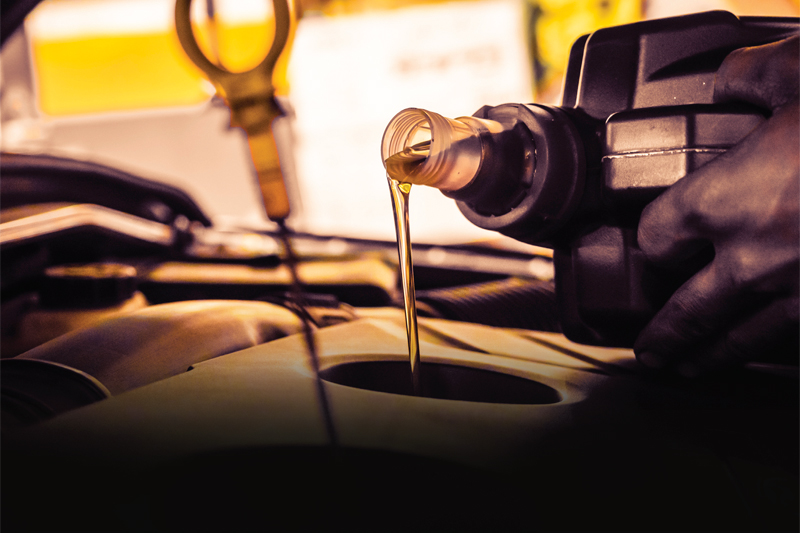
CVW spoke to Andrew Goddard, Chairman of independent industry trade body the Verification of Lubrication Specifications (VLS), as 5w30 engine oils continue to cause issues in the marketplace.
Used in LCVs, 5w30 engine oils represent a huge part of the lubricants market. In this highly competitive sector, it is perhaps no surprise that manufacturers strive to create products that can meet as many specifications as possible in order to minimise stock holding for workshops.
But it’s vital that engine oils can deliver what they claim and that mechanics can have confidence in selecting the right products for the vehicles they are servicing. That is why the Verification of Lubricant Specifications (VLS) was set up in 2013 to help maintain standards in the lubricants industry. At the time, there were concerns about some products being sold on the market making claims that sounded too good to be true.
Although the vast majority of lubricants were compliant in making valid claims based on their technical specification, the industry nevertheless came together to form VLS which acts as an independent trade body to investigate lubricant specifications and uphold industry standards.
Since then, VLS has investigated 65 cases of complaints regarding lubricants, working with manufacturers and distributors to ensure products are accurately described and their performance claims match their own technical specification. The programme has made significant strides to remove poor quality or inaccurately labelled products from sale and improve standards.
Lubricants producers now know that products can and will be investigated, including escalation to Trading Standards if required. Recently, VLS has had to take that exact step and escalate case 154 – a case relating to a fully synthetic 5w30 engine oil – to Trading Standards, following months of investigation.
Revise and review
VLS received a complaint regarding Kerax Hyperdrive (now Hyperdrive Lubricants) Fully Synthetic 5w30 C3 motor oil in 2019. The complaint alleged that the product failed its own technical specification for High Temp/High Shear (HTHS) and NOACK evaporation properties for a product of this type.
HTHS relates to the ability of an engine oil to resist shearing (or breaking down) at high temperatures, which is necessary for today’s high temperature modern engines. NOACK relates to an engine oil’s ability to resist evaporation under the same conditions. The standards are laid down by ACEA, the European association of major motor manufacturers, in its engine oil sequences which state the technical parameters for products claiming to be suitable for modern motor vehicle engines.
VLS procured and tested a sample of the product and, through independent testing, found that the product failed to meet both the HTHS and NOACK test limits with respect to the claim against the manufacturer’s specification for Mercedes-Benz (MB) 229.51, claimed on the product’s description. Although, it did meet the claim against ACEA’s engine oil sequences against the specification ‘C3’, which is suitable for gasoline and diesel passenger car vehicles with exhaust after treatment devices such as a catalytic converter or diesel particulate filter.
VLS entered into discussions with the Named Party to address the issues raised. The Named Party reformulated the product which was then tested by an independent testing house. The results confirmed that the reformulated product was compliant regarding HTHS and NOACK properties against the stated performance claims. After further assurance from the Named Party’s technology provider, VLS was satisfied that the product had been brought back into compliance and the investigation was concluded.
In April 2020, in line with its stated purpose, VLS conducted a six-month case review to ensure continued compliance. A sample of the reformulated product was procured and tested by an independent testing house. The results showed that the product met the minimum standards for NOACK, but failed to meet the minimum specification for HTHS laid down by ACEA. The Named Party has been unable to identify the cause of the issue and so the issue has been escalated to Trading Standards.
Andrew Goddard, Chairman of VLS, explains: “Due to the continued noncompliance of the product, the VLS Board has decided to raise this issue with Trading Standards for enforcement. The product is not as described and fails to meet the stated technical specification regarding its HTHS value. As a result, the product does not exhibit the correct resistance to shearing customers should expect, which could lead to issues of fuel economy and engine durability, which would impact upon the vehicle’s operation.”
The fair and anonymous nature of the VLS investigation process is vital to ensure that it remains independent and credible within the industry. Two recent cases have demonstrated the rigorous nature of that technical review process, with VLS recently closing investigations into two different 5w30 engine oils after finding no case to answer.
Case-by-case basis
In November 2019, VLS received a complaint regarding a 5w30 engine oil. The complainant claimed that the CCS failed the SAE J300 limit and that a non-proven formulation was used in relation to the VW 504 00 / 507 00 claim. The CCS was independently tested and the result was within the specification limit for this grade. The product was further analysed and, on this occasion, no significant evidence could be found to substantiate the claim relating to it being a “non-proven formulation”. Based on these test results, VLS found that that there was no case to answer and case 165 was closed with no action required.
Also in 2019, VLS received a complaint regarding another 5w30 engine oil. VLS investigated the product and found that it was not available on open sale in the United Kingdom and instead was being made to order by the Named Party. Consequently, the product did not meet the VLS criteria for investigation as it was not currently available on open sale in the UK and case 162 was closed.
Andrew Goddard continues: “VLS‘s role is to maintain an open and transparent playing field for all lubricants marketers and distributors, not just our members. VLS has a stringent investigation process to ensure that every case is correctly investigated and, if there is no case to answer, then the case will be closed with no further action.”
In a new step to uphold standards in the lubricants industry, particularly in 5w30 engine oils, VLS approached the Institute of Materials (IOM) to procure samples of UK 5w30 automotive engine oils for proactive testing. Each year, the IOM undertakes a comprehensive procurement and oil sample testing programme which is used as part of the European technical association ATIEL’s global lubricants compliance programme. The samples, including independent manufacturers as well as the major ones, had all been tested against common industry standards to ensure they were compliant with their own stated technical specifications.
Andrew Goddard concludes: “Whilst VLS has done a great job of reacting to cases that have been reported, the Board were keen to take the next step in proactively testing market samples. Overall, the products tested were broadly in compliance and, therefore, no further action is required at this time, which is positive news for the industry.
“We will continue to monitor samples in this way in the future and work with ATIEL on any issues relating to UK lubricants. Workshops face a difficult challenge to select the correct lubricants for their vehicles in an increasingly complex and competitive market. Our advice is to always check the vehicle handbook and consult the OEM or use online databases if clarification is required.”








